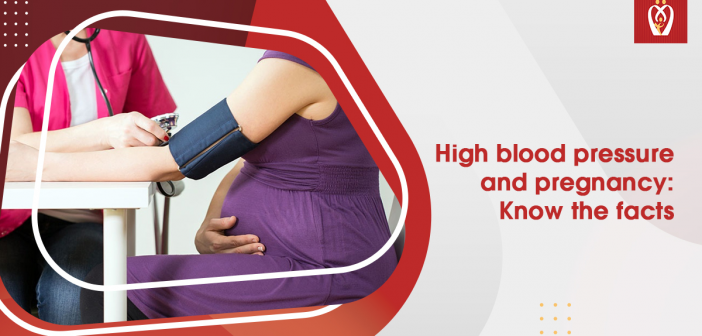High blood pressure, also called Hypertension, is when your blood level is higher than usual. Hypertension during pregnancy can put your and your child’s life at risk. ( antenatal care)High blood pressure during pregnancy is common. In the U.S., every 1 out of 12 to 17 pregnancies experiences Hypertension. But don’t worry; the good news is that Hypertension is treatable and preventable.
With proper antenatal care, you can prevent and treat your high blood pressure during and after pregnancy, which will keep both you and your child safe and healthy.
Pregnancy is a long journey, and we must ensure that the mother and child are both healthy. The first and the most important thing to do is to talk to your health care professional if you suffer from Hypertension during your pregnancy. They will guide you and try their best so that you can experience a safe pregnancy. Hypertension can be controlled, but taking care before, during, and after your pregnancy is essential.
Keep reading this blog to learn more about High blood pressure and pregnancy.
Hypertension in Pregnancy

Suffering from high blood pressure needs close monitoring. Some women can experience Hypertension before pregnancy, and for some, it can start after pregnancy too. The entire before, during, and after pregnancy is crucial and needs proper care and treatment.
There are four types of Hypertension experienced by pregnant women.
-
Chronic Hypertension
ChronicHypertension can happen before pregnancy or during the 20 weeks into the pregnancy, that is before the gestation period begin. Chronic Hypertension doesn’t usually have symptoms, so it is hard to understand when it might have started. Many women do well despite having chronic Hypertension, but for some, it can lead to other complications and hence need constant monitoring so that the levels are in control.
-
Chronic Hypertension with superimposed Preeclampsia
This happens when chronic Hypertension worsens the high blood pressure during pregnancy. Pregnant women with this condition may start developing protein in urine with other complications which need treatment and medication from their health care professional.
-
Gestational hypertension

In gestational Hypertension, women develop high blood pressure after 20 weeks of pregnancy. There is no excess presence of protein in this urine and other signs of organ damage. This often occurs in women in their first pregnancy and is also most common in twin pregnancies. If left untreated, gestational Hypertension can lead to Preeclampsia. (antenatal care)
-
Preeclampsia
Preeclampsia occurs in women with Hypertension after 20 weeks of pregnancy. Women with Preeclampsia can experience blurred vision, stress on the heart, and other serious complications related to kidney and liver; it can seriously affect organs if left untreated. This can be dangerous for the mother and the unborn baby (fetus). Preeclampsia leads to Eclampsia, where the mother can experience seizures after the pregnancy. (antenatal care)
Guidelines for Hypertension in pregnancy
Hypertension occurs in around 6% of pregnancies, and it’s important to consult your health care provider regularly. Closely monitoring your blood pressure levels, that is, your systolic and diastolic levels is very crucial. Unidentified Hypertension and if not treated on time can lead to the increased risk of maternal stroke, lower birth weight, and other complications as well. (antenatal care)
Women with inadequate dietary calcium intake may increase the risk of preeclampsia, which should be monitored through diet and calcium supplements after consulting the health care provider. Chronic Hypertension affects the cardiovascular health of the mother, and hence the mother must avoid the stress of any kind.
Your health care provider will often ask for your health history and your family for a proper diagnosis. With appropriate treatment and care, Hypertension can be controlled during pregnancy.
Pulmonary Hypertension In Pregnancy | antenatal care
Pregnancy in women with Pulmonary Hypertension is associated with high morbidity and mortality rates.
The physiological changes that do occur during postpartum and the peripartum period are poorly tolerated. Pulmonary Hypertension’s symptoms can often be very similar to normal pregnancy, and due to this, these patients can be missed during evaluations.
Pulmonary embolism and amniotic fluid embolisms(A.F.E.) are regarded as the most common causes of Pulmonary Hypertension in pregnancy. The Peripartum period is the most crucial time in the pregnancy that needs to be closely monitored as this is when most maternal death occurs.
There is no standardized approach to the management of Pulmonary Hypertension in the current treatment; however, anticoagulation and supportive measures are the treatments for pulmonary embolism and A.F.E.
What to do if you have Hypertension |Antenatal care
Taking good care of yourself is one of the best and most important ways to take care of your baby. Make sure you visit your health care provider regularly or on the scheduled appointments. Ask them what’s good for you and what is off-limits. Eating healthy will keep you and your baby in good health.
Take the prescribed doses of medications and stay physically active. Avoid drinking alcohol and smoking. Please do not take any non-prescribed medications, and it’s always better to ask your doctor. Staying Mentally fit is crucial during pregnancy; ensure that you are not undergoing any stress as this can further add complications for you and your baby.
Conclusion
High blood pressure is common in many pregnancies. All you need to do is ensure that you are taking all the necessary steps to check your blood pressure, and you can experience a normal pregnancy. Visit your gynecologist or Health care provider and take care of yourself and your baby. (antenatal care)
Why Nurturey?
The PinkBook by Nurture is a digital substitute for N.H.S. Redbook. The PinkBook allows pregnant women and parents to access their child’s health records, view upcoming health checkups, and access trusted N.H.S. information about pregnancy and parenting. PinkBook will let you ease into your pregnancy and parenting journey.
You can also schedule your appointments with G.P./midwife through the Nurture PinkBook. Communicate with your doctor about anything concerning or troubling you regarding your pregnancy and post-pregnancy. You can also get your prescription refills from your doctor. For more information, visit Nuturey at https://www.nurturey.com. You can download their App from the Google play store and Apple store.







